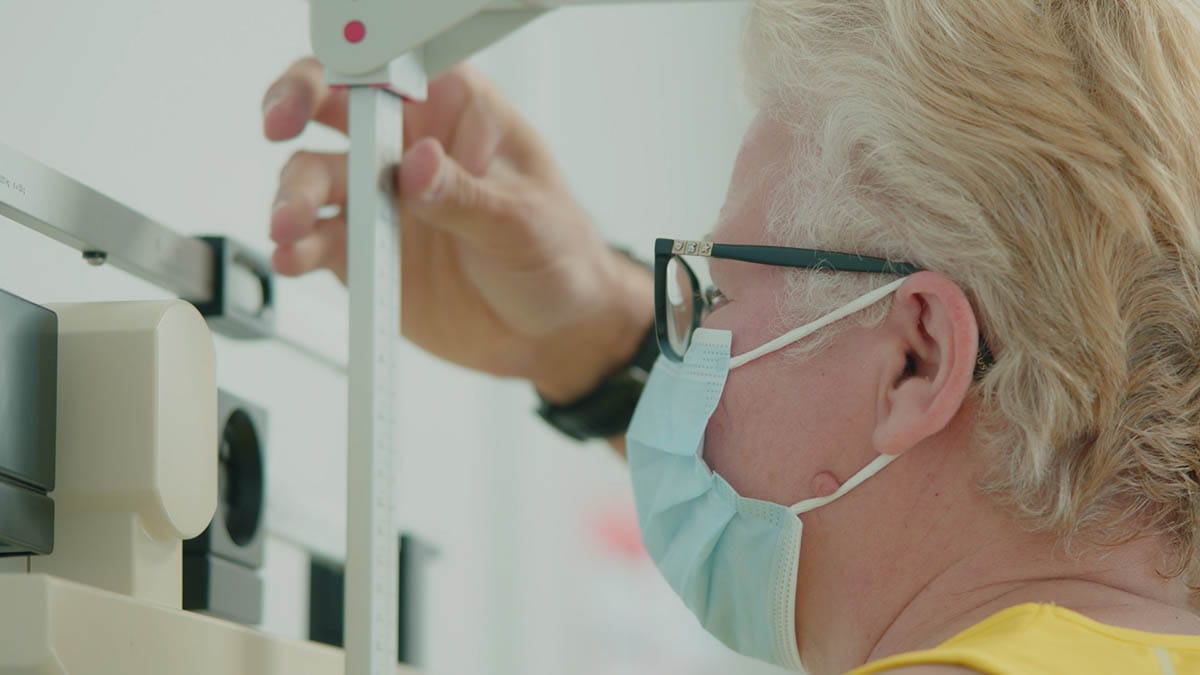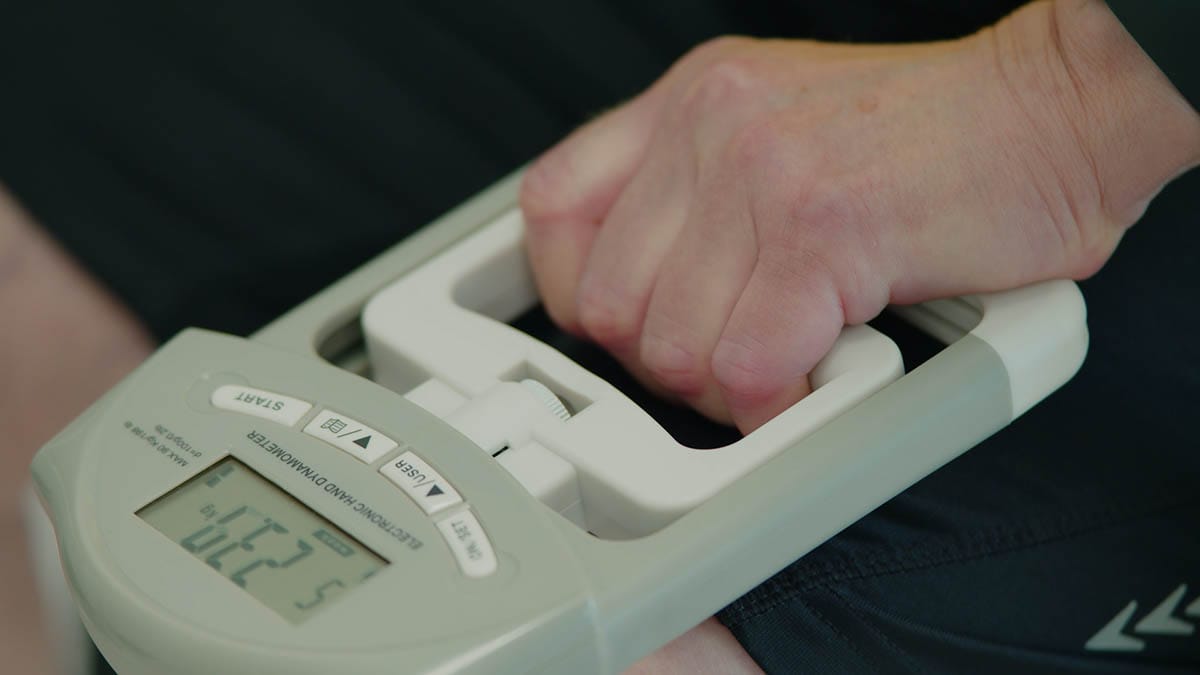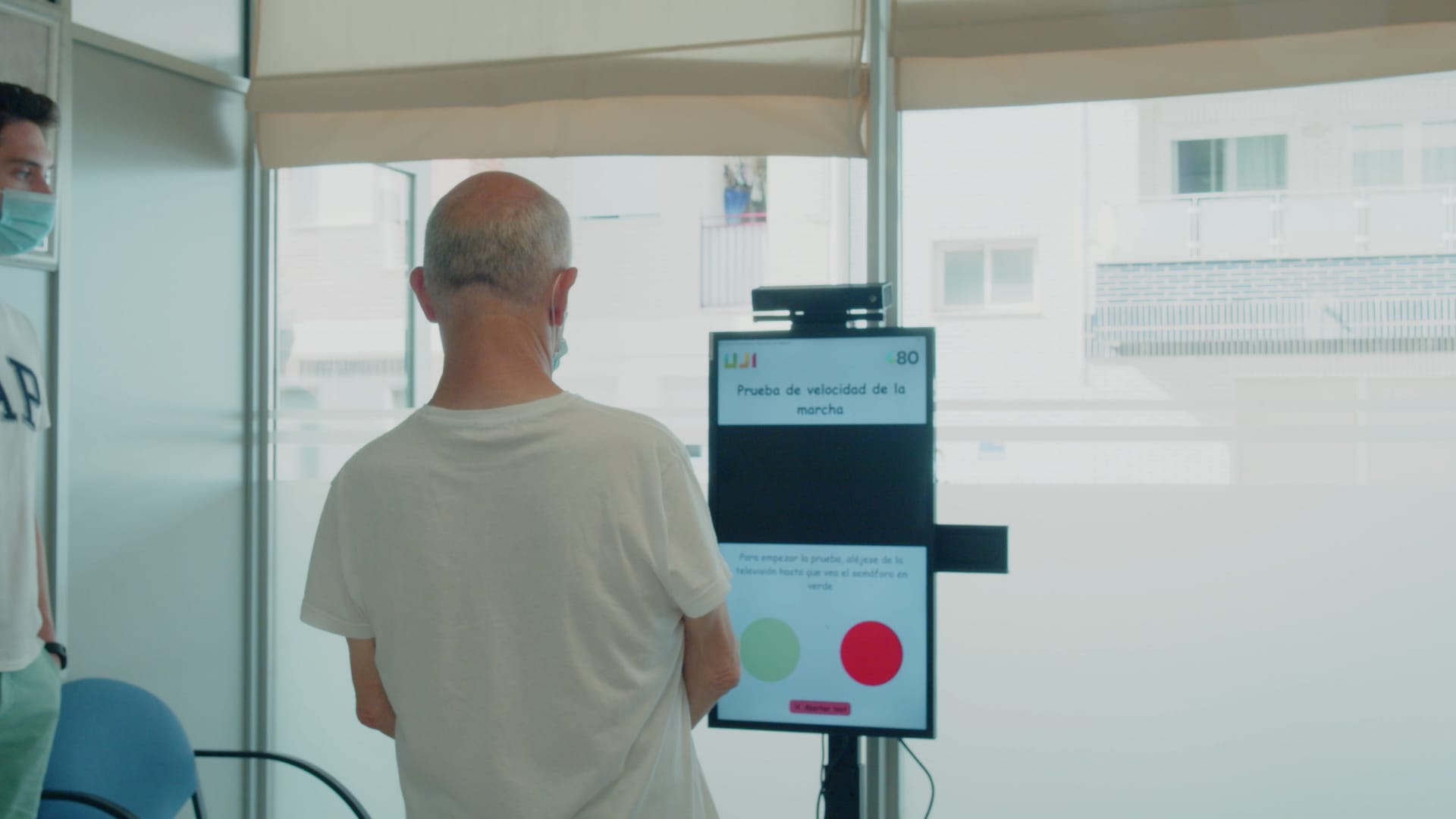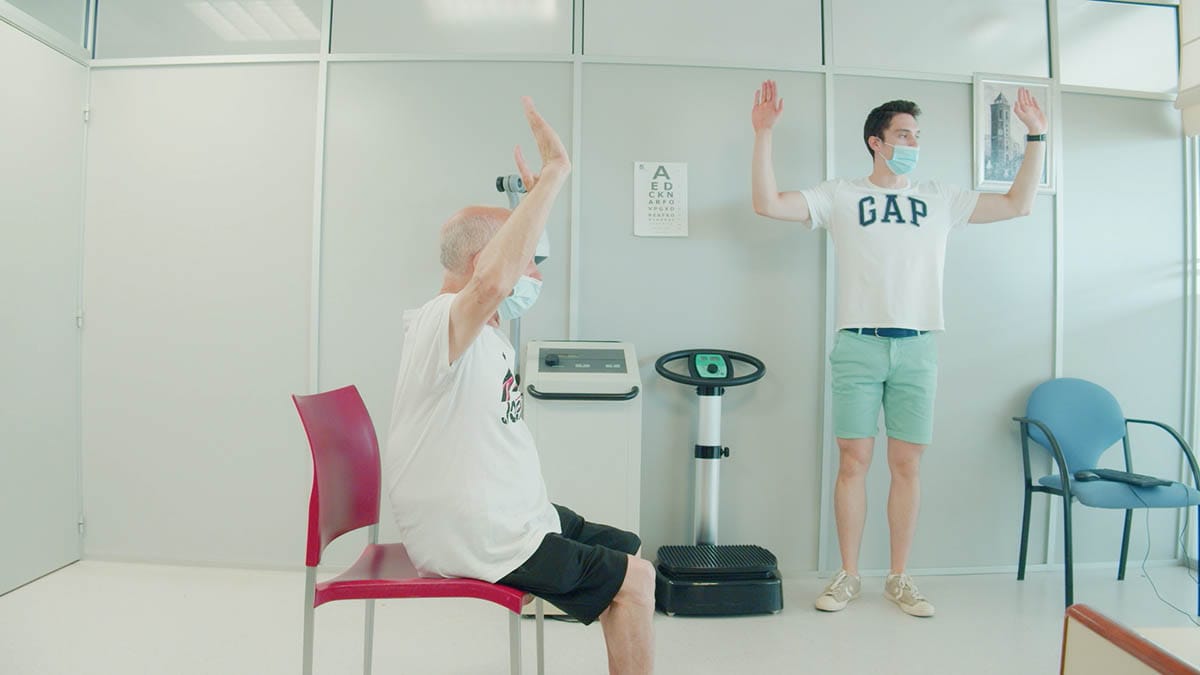The Chair Cuatroochenta of Artificial Intelligence, Health and Welfare of the Universitat Jaume I (UJI), has carried out, during June, the first tests with its system to detect signs of frailty in a group of users of a geriatric centre in Castelló de la Plana. In general, the technological solution was very well received by the users of the centre in terms of its ease of use and usefulness.
3D technology for frailty assessment
Developed by the Chair's team, the device is based on 3D technology cameras from the company Kineactive, used to monitor the exercise of people undergoing rehabilitation. Its objective is to detect signs of physical fragility through three tests in which the person is sequentially guided through instructions that combine text and audio so that they can follow them in a simple and agile way. These tests are related to walking speed, the person's ability to sit and stand up and, finally, balance.
Comprehensive assessment of frailty
In addition to the evaluation of physical frailty with the 3D camera, cognitive and social frailty were also studied during the pilot test. To this end, two tests were administered: the Pfeiffer questionnaire, one of the most widely used instruments for detecting cognitive deterioration, mainly in the elderly population, consisting of 10 short questions that evaluate memory and other cognitive functions; and another for the social aspect, the Garre-Olmo et al. social frailty scale, which collects information on who the person normally lives with, how often they see their family and friends, or whether they would have help if they needed it from significant others. Several measurements were also taken, such as height, weight and grip strength.
To find out the opinion of the people who tested the camera, a usability questionnaire was carried out. Gathering this information is crucial for adapting the different features and functionalities included in the camera to the users. All the information obtained was extremely useful to continue improving the camera in terms of the feasibility and effectiveness of the evaluation of the different tests, as well as the ergonomics and adaptability to the group of elderly people.
Improved results management
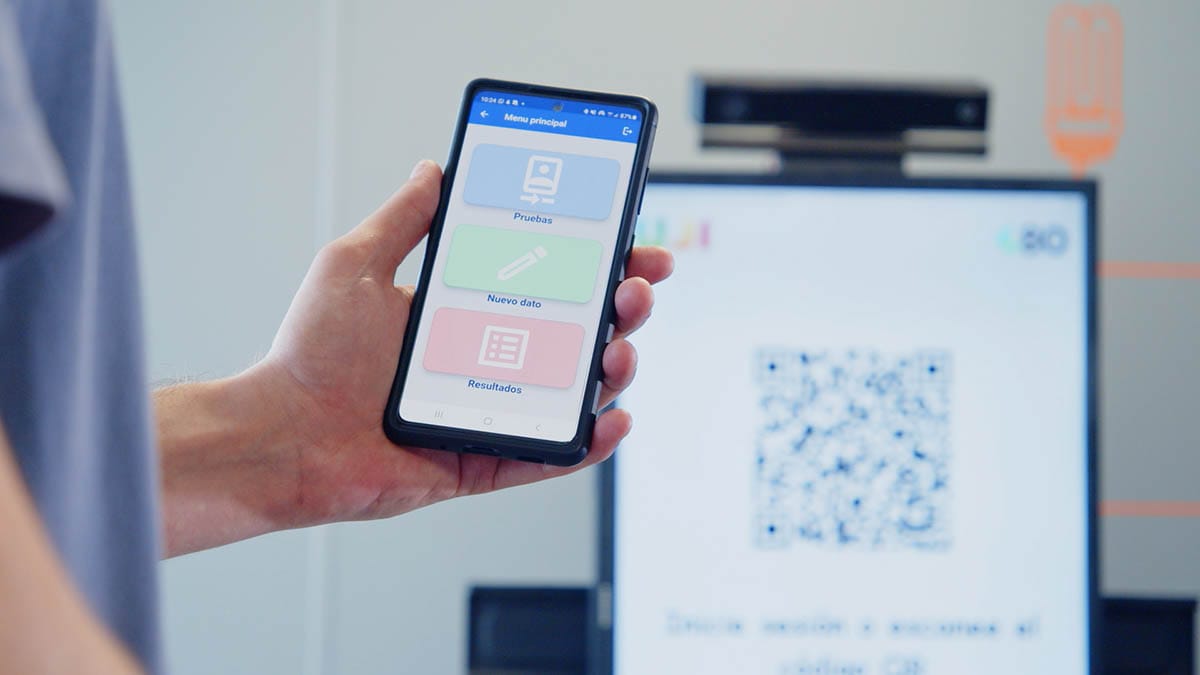
Current work of the Chair
Approximately 30% of elderly people are in a situation of dependency in Spain, according to data from the National Institute of Statistics. Therefore, the development of this type of assessment procedures using new technologies can be very useful for streamlining preventive processes through the early detection of frailty. In this sense, the Chair's team is currently working on adapting the camera, using the feedback provided by users in this first pilot test. Soon the group plans to carry out more tests in other centres in the city of Castelló with the aim of having the camera ready so that the elderly can benefit from its use as soon as possible.
